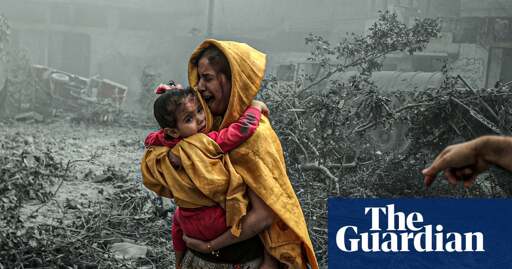In a week in which former allies in a redividing globe separately commemorated the 80th anniversary of the end of the second world war, the sense of a runaway descent towards a third world war draws ever closer.
The implosion of Pax Americana, the interconnectedness of conflicts, the new willingness to resort to unbridled state-sponsored violence and the irrelevance of the institutions of the rules-based order have all been on brutal display this week. From Kashmir to Khan Younis, Hodeidah, Port Sudan and Kursk, the only sound is of explosions, and the only lesson is that the old rules no longer apply.
Indeed Fiona Hill, the policy analyst and adviser to the UK government on its imminent strategic defence review, argues the third world war has already started, if only we would recognise it.



Same as it ever was…
Yup. Even longer, actually: Timeline of intercommunal conflict in Mandatory Palestine
Eventually leading to the 1948 Arab-Israeli War and ongoing conflict
Basically the violence has been constant, with occasional breaks to reload.
The Pax Americana is probably responsible for the relative stability of the '90s and '00s - there was still violence, car bombings and rocket attacks &etc, but not open warfare. That’s obviously ending now.
My guess is that the period without warfare allowed Palestine to develop some economic stability and power of its own, which Israel perceived as a long-term threat. Combine that fear with greed and expansionism and you get the current attempt to erase Palestine.
There was no period without warfare or economic stability in Palestine. Israel went to war in Gaza four times between the second intifada and 2023, in addition to the blockade that meant no serious economic development could happen. As for the West Bank, also since the second intifada it has been under an economic stranglehold by Israel, and settlements are only one step removed from the warfare you’re talking about. So… Yeah. Things were not getting better for Palestinians before October 7th as far as I’m aware.
I mean… there was time to build a bunch of modern residential buildings, hospitals and businesses (the things Israel is currently blowing up and bulldozing) and for people to live their lives without having to be armed 24/7. It literally has not been open warfare (at least for a little while), and yes there was some economic stability, enough for local Palestinian businesses to develop, for a semi-functional civilian government to form, and for civil services like hospitals and schools to be established. It hasn’t just been a warzone for 100 years.